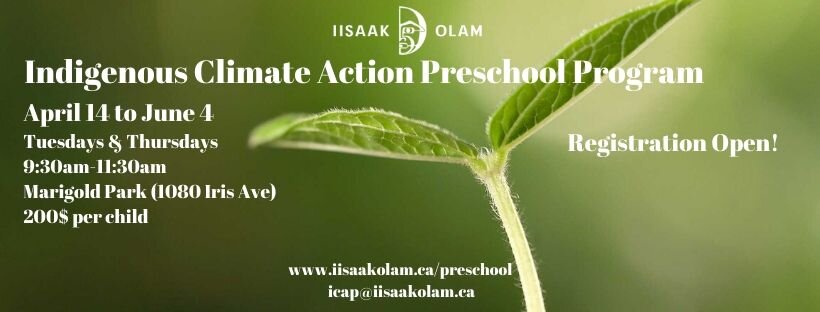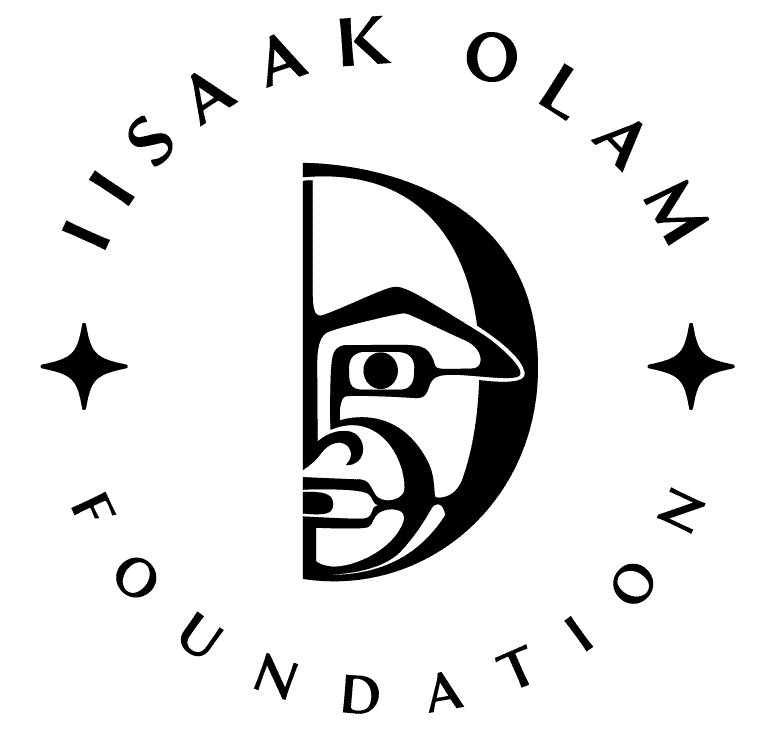DISCLOSURE: Despite the current COVID-19 pandemic, the Indigenous Climate Action Preschool (ICAP) programming has been able to continue as it is an outdoor-facilitated program where preschoolers and Session Leaders are not kept within enclosed spaces.
So far during the Winter semester of ICAP, our preschoolers and Session Leaders have both enjoyed an abundance of in-depth place-based learning at our local Marigold and South Valley Parks. This began with a tour facilitated by Marigold’s Volunteer Steward, Laura Gretzinger. Laura walked alongside Session Leaders, Christina and Jee-Ho, identifying native and invasive species whilst explaining climatic and human threats to each.
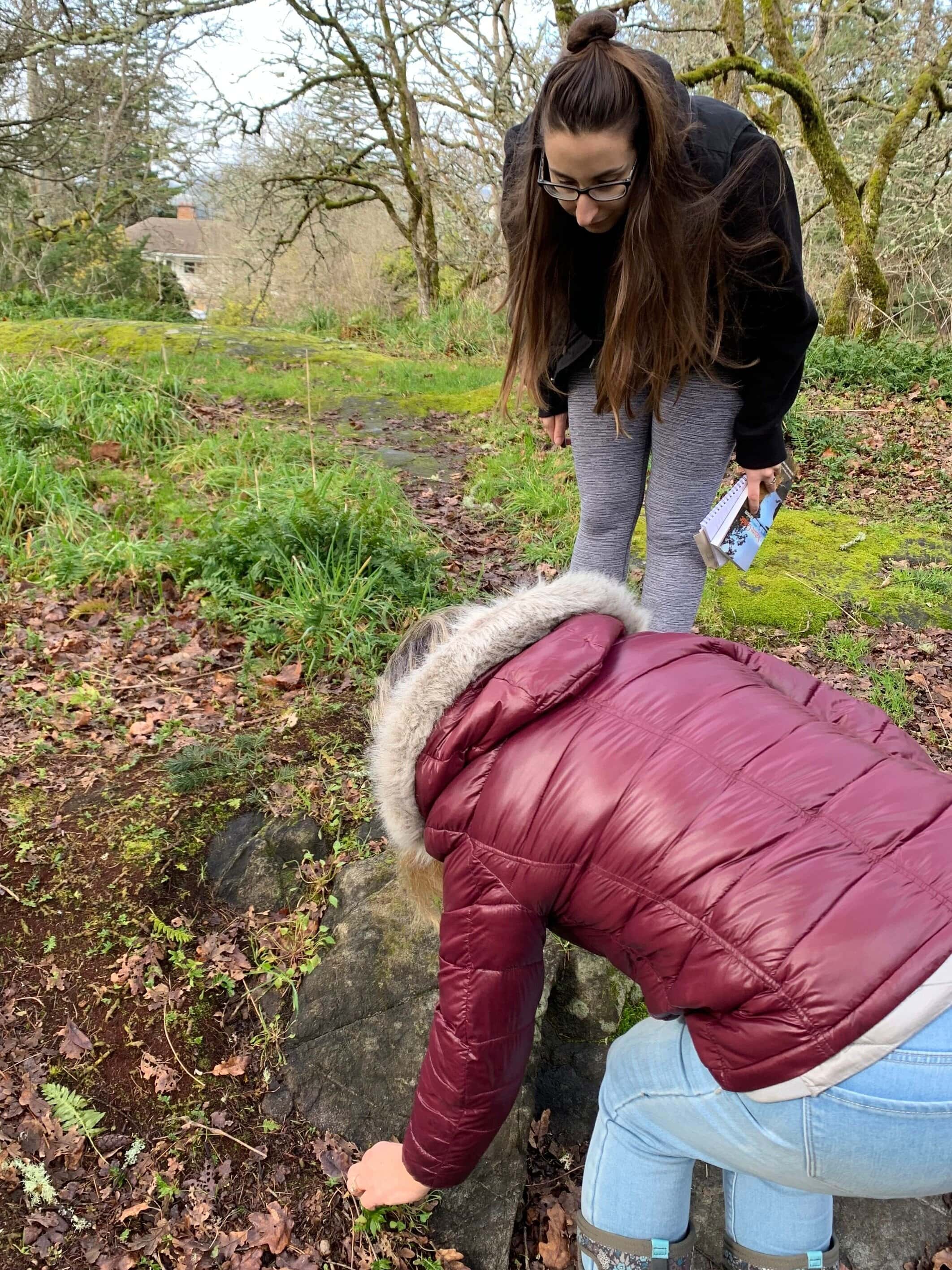
Gretzinger (bent over) showing Session Leader (standing) Liquorice Fern.
Photo © IISAAK OLAM Foundation
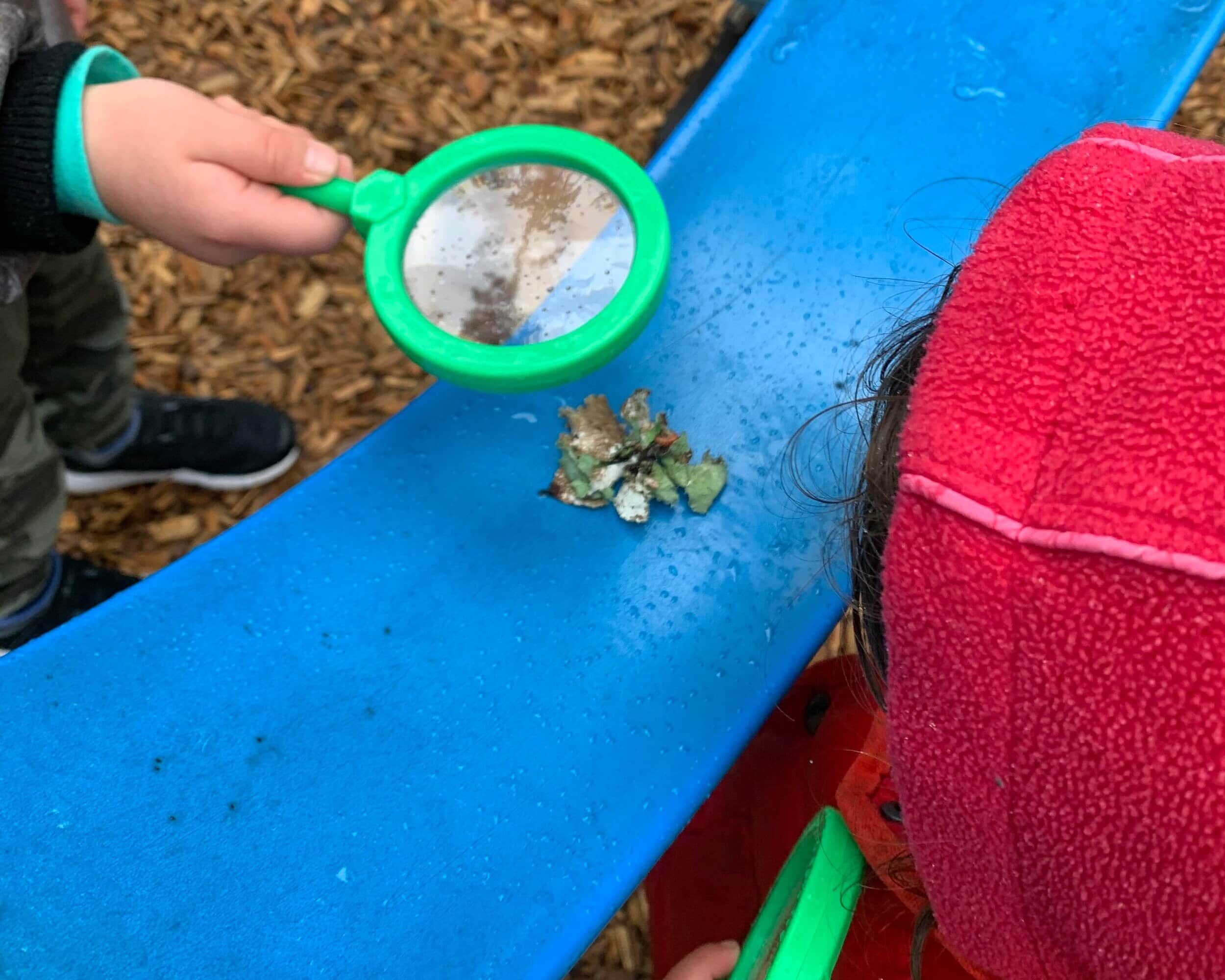 Participants looking at Lichen up close and personal!
Participants looking at Lichen up close and personal!Photo © IISAAK OLAM Foundation
Throughout this tour, Laura explained that Marigold Park is maintained by volunteers that support the survival of native species such as the Garry Oak and Douglas Fir. Volunteers accomplish this by removing invasive species such as English Ivy and Daphne. From this, our Session Leaders reflected on how this model of conservation reinstates that humans and nature are inseparable, and that it is indeed critical that humans play a role in conservation. This notion is supported by Indigenous Protected and Conserved Areas (IPCAs), as the lands and waters are what influence Indigenous Nations on how to act and govern their territories and IPCAs. However, Laura also explained that there are challenges to having humans in nature. For instance, because Marigold is located within a residential area, visitors often inadvertently disturb restoration efforts due to their lack of knowledge around their local parks and environments. Due to this, ICAP Session Leaders have developed informative activities within the curriculum to educate our cohort on how to identify and respect restoration efforts within our communities.
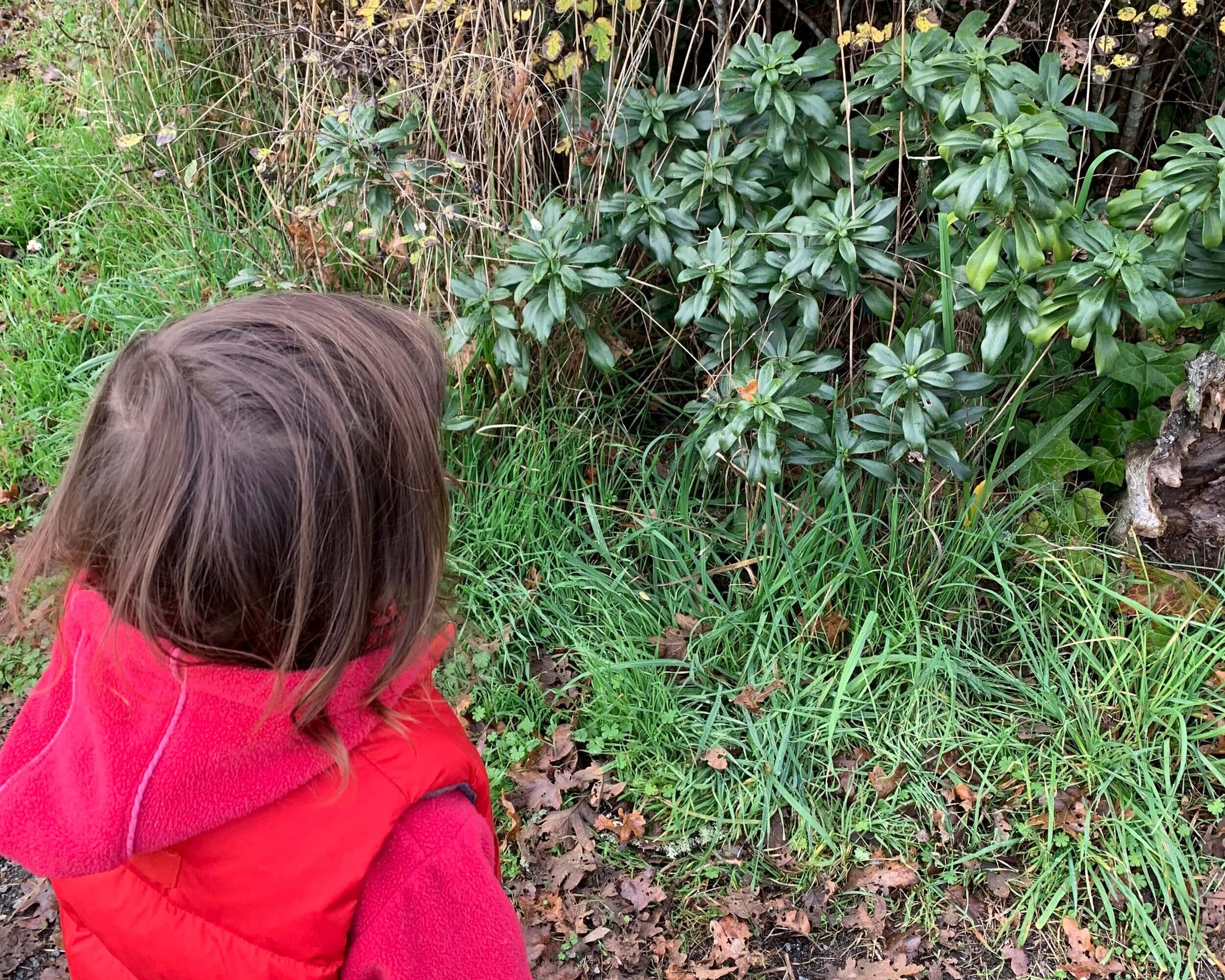 Participant identifying Daphne (invasive specie) Photo © IISAAK OLAM Foundation
Participant identifying Daphne (invasive specie) Photo © IISAAK OLAM FoundationSession Leaders help preschoolers respect restoration efforts by educating them on how to identify trails, signs, and fences. This allows preschoolers to become knowledgeable park visitors early on, ones that understand how to navigate and explore their local parks in a good way. Session Leaders have also integrated engaging activities like Ecosystem Eye-Spy to get preschoolers familiar with species in our local parks. Ecosystem Eye-Spy has allowed our small cohort to explore their surroundings and strengthen their abilities to memorize and identify species during our Nature Walks. This activity prepares preschoolers for their next steps in their place-based journey which delves more deeply into recognizing which species are invasive or native to their local environments.
With the upcoming Spring semester rolling in, it will be exciting to see how the different species react to the warming weather , and what kind of new species there will be to learn about. The IISAAK OLAM Foundation would like to thank those that participated in both the rainy and sunny days of the Winter semester and welcome families to visit the ICAP website for more information and to register for the Spring semester!
